UN Sustainable Development
Analyzing Canada's energy landscape through data analytics to advance United Nations SDG 7, ensuring equitable access to affordable and clean energy.
8/24/20234 min read
Project Overview
Welcome to the United Nations Sustainable Development Goal 7 (SDG 7) Data Analytics Project, where we delve into Canada's journey towards "Ensure access to affordable, reliable, sustainable, and modern energy for all."
Our project immerses itself in Canada's intricate energy landscape, harnessing data analytics to decode energy consumption trends, renewable energy embrace, and energy accessibility across its diverse provinces. Our primary goals encompass:
Pioneering insights into Canada's energy consumption patterns.
Dissecting the percentage of renewable energy integration into the national energy mix.
Probing energy access equality, exploring disparities within and between provinces.
Problem Statement
The United Nations Sustainable Development Goal 7 (SDG 7) calls for the universal achievement of "Affordable and Clean Energy," ensuring access to reliable and sustainable energy sources for all. To contribute to this global endeavor, we embark on a data analytics project that focuses on Canada's journey towards SDG 7. Despite Canada's abundant energy resources and initiatives towards sustainability, disparities in energy access, consumption patterns, and adoption of clean energy sources persist across its diverse provinces.
The problem at hand is twofold: First, we need to comprehensively understand Canada's current energy landscape, including factors such as energy consumption trends, the extent of renewable energy integration, and the equitable distribution of energy access. Second, we seek to leverage data analytics to identify the key challenges and opportunities that need to be addressed to align with the principles of SDG 7, while also considering Canada's unique regional characteristics.
Through meticulous data analysis and visualization, we aim to provide actionable insights to policymakers, energy organizations, and communities, helping them make informed decisions to accelerate progress towards affordable and clean energy for all in Canada. By addressing this problem, we contribute to the global mission of sustainable development while ensuring Canada's energy future is inclusive, efficient, and environmentally responsible.
A Comparative Glimpse: Global vs. Canadian Energy Consumption and Ambitions
In the context of global and national energy landscapes, a comparison of total energy consumption reveals distinct patterns. The world's total energy consumption has been experiencing a gradual evolution, reflecting shifts towards cleaner and more sustainable sources. This transition underscores the global commitment to address climate change and reduce carbon emissions. In Canada, total energy consumption is characterized by a diverse mix, encompassing fossil fuels, hydroelectric power, and emerging renewable sources. As Canada advances its energy goals, a comprehensive approach aims to balance economic growth with environmental responsibility. By monitoring consumption trends, implementing energy efficiency measures, and enhancing renewable integration, Canada strives to contribute to the global endeavor of achieving cleaner and more sustainable energy consumption patterns.
With targets set to reduce greenhouse gas emissions and increase renewable energy integration, Canada envisions a future characterized by energy efficiency, reduced carbon footprint, and a resilient energy infrastructure. By leveraging innovation, collaboration, and strategic policies, Canada is on a trajectory to shape a sustainable energy landscape that echoes its commitment to environmental stewardship and economic prosperity.
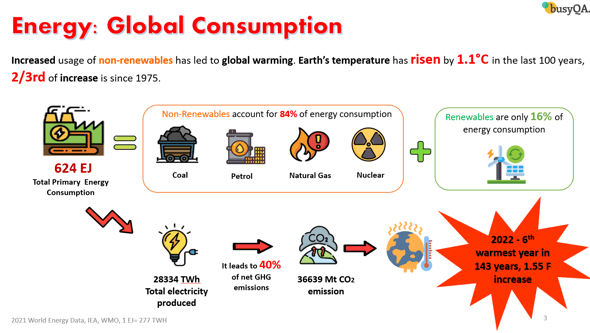

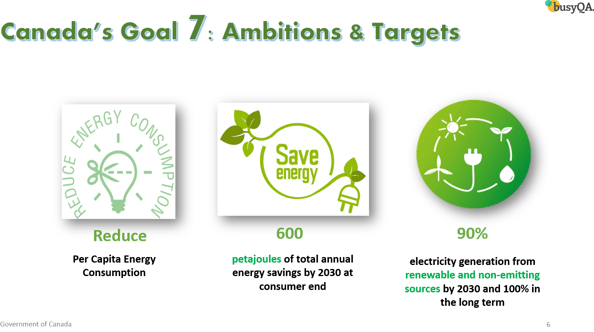

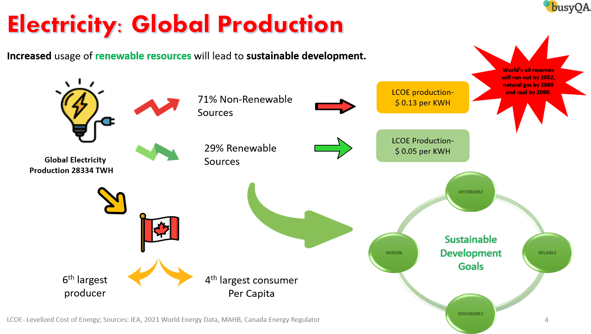

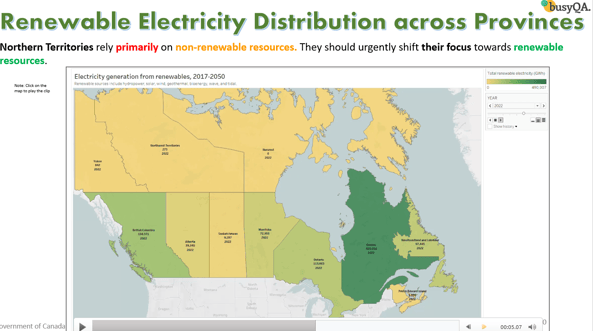

In the realm of renewable energy adoption, a comparative analysis between the world and Canada reveals intriguing insights. Globally, the utilization of renewables has experienced steady growth, reflecting an increasing emphasis on sustainable energy sources. In contrast, Canada has made commendable strides, particularly in provinces like British Columbia, where hydroelectric power plays a substantial role. However, while Canada's progress is notable, there's still room for advancement to align with global leaders in renewable integration. By capitalizing on its abundant natural resources and leveraging targeted policies, Canada has the potential to bolster its renewable energy capacity and contribute significantly to the global sustainability agenda.
Implications and Recommendations
Based on our findings, we recommend a multi-faceted approach to propel Canada closer to SDG 7:
Diversified Energy Sources: Encourage further investment in various renewable energy sources to mitigate dependence on fossil fuels.
Regional Policies: Tailored policies addressing specific energy access challenges in different provinces to ensure equitable distribution.
Community Engagement: Collaborate with local communities to raise awareness about energy efficiency and sustainable practices.
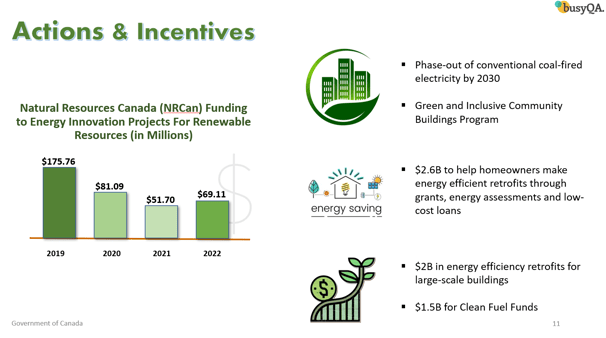

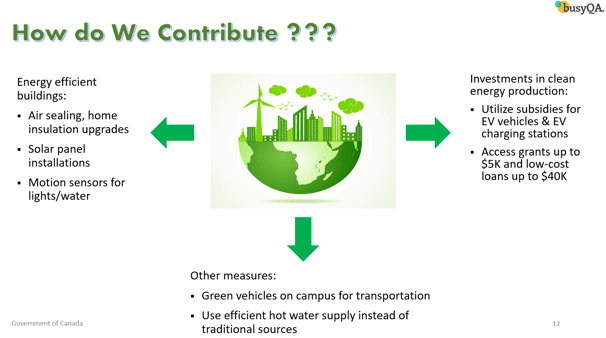

Conclusion
In culmination, our data analytics journey through Canada's energy landscape, guided by the United Nations SDG 7, illuminates the path towards a more sustainable future. Our meticulous analysis of energy consumption, renewable integration, and energy access disparities underscores the intricate balance between economic development and environmental stewardship. As we stand at the intersection of global energy challenges and local ambitions, the insights garnered pave the way for targeted strategies and informed decision-making. Canada's commitment to SDG 7 shines through its progressive policies, collaborative efforts, and aspirations to reshape its energy narrative. By harnessing the power of data, innovation, and a shared commitment to sustainable development, we envision a future where energy is both affordable and clean, leaving a legacy that resonates with generations to come.